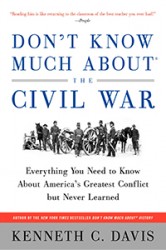(Reposted from 2014)
Capital is only the fruit of labor, and could never have existed if labor had not first existed. Labor is the superior of capital, and deserves much the higher consideration.
Abraham Lincoln, “First Annual Message to Congress” (“State of the Union”) December 3, 1861
It is not needed nor fitting here that a general argument should be made in favor of popular institutions, but there is one point, with its connections, not so hackneyed as most others, to which I ask a brief attention. It is the effort to place capital on an equal footing with, if not above, labor in the structure of government. It is assumed that labor is available only in connection with capital; that nobody labors unless somebody else, owning capital, somehow by the use of it induces him to labor. This assumed, it is next considered whether it is best that capital shall hire laborers, and thus induce them to work by their own consent, or buy them and drive them to it without their consent. Having proceeded so far, it is naturally concluded that all laborers are either hired laborers or what we call slaves. And further, it is assumed that whoever is once a hired laborer is fixed in that condition for life.
Now there is no such relation between capital and labor as assumed, nor is there any such thing as a free man being fixed for life in the condition of a hired laborer. Both these assumptions are false, and all inferences from them are groundless.
Labor is prior to and independent of capital. Capital is only the fruit of labor, and could never have existed if labor had not first existed. Labor is the superior of capital, and deserves much the higher consideration. Capital has its rights, which are as worthy of protection as any other rights.
Source and Complete text: Abraham Lincoln: “First Annual Message,” Read more about Lincoln, his life and administration and the Civil War in Don’t Know Much About® History, Don’t Know Much About® the Civil Warand Don’t Know Much About® the American Presidents
Labor Day became a federal holiday on September 3, 1894.
Read about the history of Labor Day in this post.

Don’t Know Much About the Civil War (Harper paperback, Random House Audio)